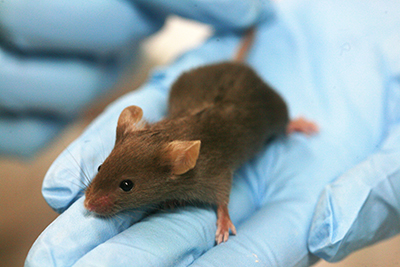Using CRISPR, a targeted "genetic surgery" may be conducted on a fertilized egg. The length of time necessary to create a modified strain has been cut down to 6 months. These genetically engineered mice, modified to "knock out" or "knock in" genes are employed as key research models for diseases such as alzheimer's, osteoarthritis, muscular dystrophy, and Parkinson's.
CRISPR has also significantly reduced the cost necessary to modify mice. Tak Mak, of the University of Toronto in Canada, who was also a pioneer in the mouse-mutating business, estimates it's about 30% cheaper to engineer a mouse with CRISPR instead of ES cells. At prices up to $20,000 USD for a custom mouse strain from JAX, this price reduction, as well as the remarkably easy technique, has the potential effect of opening up smaller labs to simply modifying strains themselves.
An international consortium consisting of a number of model mice development companies, including JAX, is currently working towards knocking out all 21,000 mouse genes, one by one, in order to reveal their function. The US National Institute of Health is so impressed by CRISPR's cost and ease of use, that it no longer funds consortium investigators to use embryonic stem cells.
CRISPR, as well as further developments in genome editing and synthetic biology, are my primary area of interest. I hope to find a career in which I may be able to work with and learn more about these systems.

No comments:
Post a Comment